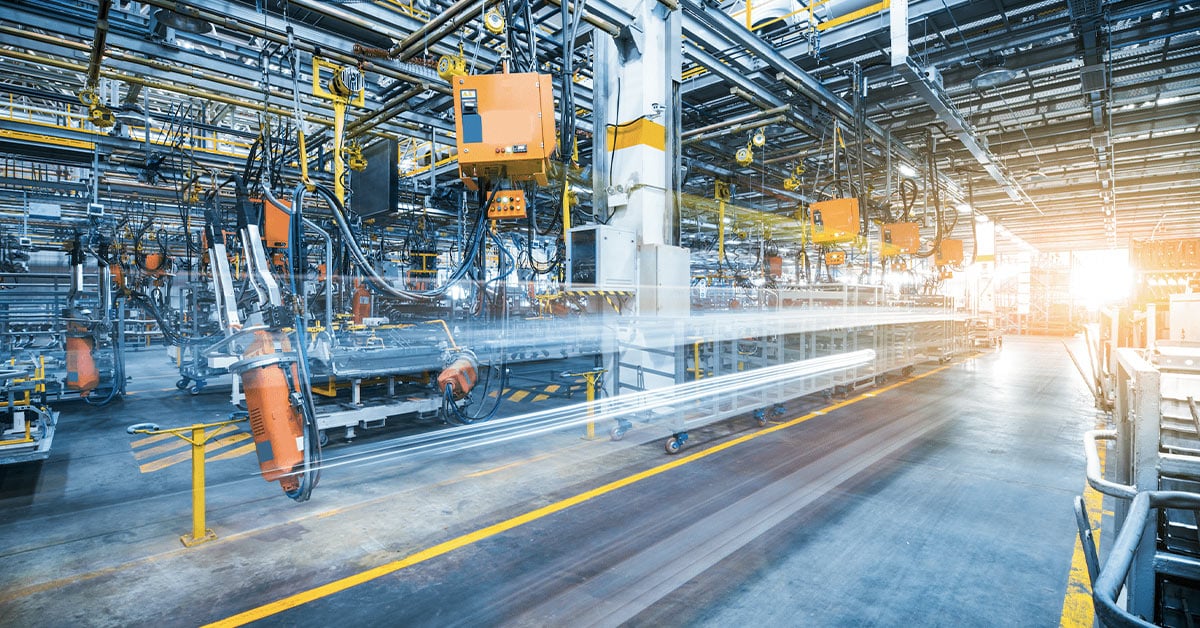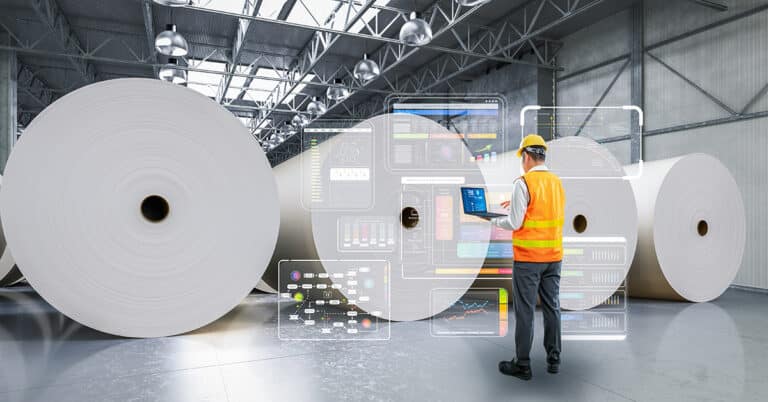The role of facility management in the success of an industrial facility is significant. The facility manager is responsible for positioning the facility for success in terms of operations, safety, functionality, technology and personnel management, etc. Facility management is a big-picture responsibility that must be able to focus on and synthesize operational details across every function of the facility.
Industrial facility management helps manufacturers avoid and overcome many of the most common obstacles they face on a regular basis. By establishing and following an effective system they can prevent downtime, enhance worker safety and ensure regulatory compliance. Strong facilities management serves as the foundation for continuous improvement efforts and puts manufacturing operations in the best possible position for sustained success.
What is facility management? The 11 core competencies
At its core, facility management is a holistic approach that seeks to coordinate every aspect of an industrial environment to optimize it in every respect. This asset management philosophy is based on the idea of coordinating how manufacturers use their space, people, equipment and organizational processes to achieve better results. Organizations that adhere to this discipline are focused on improving the efficiency, safety, comfort and maintenance throughout their facilities.
An effective facility management system and manager will possess expertise in the following 11 core competencies, as defined by the International Facility Management Association:
- Occupancy and human factors: Better ensures the facility is safe, healthy and secure for workers, and furthermore fosters an environment of support, innovation, diversity and development — all of which ultimately benefit the organization. Human resources functions such as performance assessment and goal setting factor into this competency.
- Operations and maintenance: Closely oversees and tracks maintenance practices, issues and systems throughout the facility. While maintenance personnel are responsible for day-to-day functions, the facility manager develops maintenance strategy and planning.
- Sustainability: Identifies opportunities for sustainable processes and technology to benefit the external environment as well as facility operations. Develops, implements and oversees sustainability practices and enhances them as warranted.
- Facility information and technology management: Stays up to date with industrial maintenance technology, and identifies and implements opportunities for technology upgrades throughout the facility. Manages installation, planning and evaluation for new technology.
- Risk management: Creates emergency management and continuity plans for unexpected events. Designs and manages emergency testing and simulation to assure preparedness throughout the organization.
- Communication: Oversees, at a high level, all communication throughout the facility — including announcements, maintenance notices, process reminders, mission statements and safety communication. Provides input on communication methods, channels, messaging and more. Reports on communication effectiveness to stakeholders.
- Performance and quality: Creates performance and quality standards, including benchmarks, assessment methodology, metrics, best practices and service level agreements. Closely monitors quality performance and creates and implements improvement plans as necessary. Measures and reports on quality for the organization.
- Leadership and strategy: Is highly visible as a competent leader in all aspects of facility operations. Provides support and assistance wherever requested and required. Advocates on behalf of the facility as an asset. Provides communication and transparency into processes and strategy, and solicits feedback for improvement from all levels throughout the organization. Remains up to date on facility best practices, and is a thought leader.
- Real estate: Understands, identifies and manages real estate needs — including facility footprint and external environment. Plays a key role in real estate acquisition, leasing, sales and portfolio management.
- Project management: Identifies project needs and manages personnel, vendors, contracts, budgets, evaluation and reporting on project results.
- Finance and business: Understands and prepares financial documents and reports including budgets, contracts, balance sheets/P&Ls, procurement, chargebacks and more. Collaborates as necessary with accounting and finance personnel to assure copacetic financial practices.
The role of technology in modern facility management
With the rise of the Industrial Internet of Things (IIoT), connecting manufacturing equipment together into a single network, manufacturers today have access to much more data than ever before. This has helped bring about a quantum leap forward in the facility management market, as leveraging the power of big data can lead to significant advancements in how these philosophies are implemented. Among the many technologies that are driving these improvements in operational efficiency include:
- Smart sensors: By providing real-time insights into the condition of equipment and the surrounding environment, technicians can make better-informed decisions concerning preventive maintenance.
- CMMS and data analytics: Advanced data analysis provided by facility management software makes it possible to schedule work orders for predictive maintenance tasks with greater accuracy, thus reducing the amount of potential downtime.
- Energy management software: New software tools give manufacturers more control over their energy consumption to drive greater operational efficiency and lower costs.
In general, the use of technology has the potential to reduce manual effort, improve accuracy and support strategic decision-making.
Key challenges in industrial facility management
Industrial facilities face unique challenges that other commercial environments don’t need to worry about, which creates some complexities when it comes to implementing any facility management program. Among the most common issues facing facility managers in the industrial sector are:
- OSHA/EPA compliance: Any successful facility management plan must account for the use of heavy machinery, potentially harmful chemicals and controlling pollution. Complying with all applicable regulations and guidelines must be a core component of any facility management efforts.
- Safety protocols: Minimizing risks to workers within industrial settings should be one of the highest priorities when developing a comprehensive facility management program.
- Aging infrastructure: Modernization comes with a high price tag, and facility managers must be able to balance their needs from a facility management perspective with the financial realities under which they work.
- Large footprints: Most industrial facilities are of a much larger scale than other commercial properties, which ramps up the complexity and difficulty involved in facility management. This is why any plan requires strong coordination to have any effect.
Benefits of effective facility management
The benefits of a competent, effective facility manager, and thus effective facility management, are many. A successful facility manager is a vocal, visible advocate for continuous improvement throughout the facility — especially in high-value, high-impact areas such as technology, maintenance, process, sustainability and more. Among the many benefits a facility management plan can provide for manufacturers include:
- Improved asset reliability and equipment uptime: With a proper system in place for work order management, maintenance can be performed when needed. This ensures equipment remains online for as long as possible.
- Reduced operational costs: With people and equipment performing as efficiently as they can, manufacturers can cut down on waste and reduce operating costs.
- Enhanced workforce efficiency and safety: Keeping employees focused in the right areas means more productivity and less risk of injury.
- Regulatory compliance and risk management: Having the right protocols and practices in place helps manufacturers lower their risk from a compliance standpoint.
- Scalability and growth support: With a facility management plan in place, manufacturers will be in a better position to adapt as their needs grow.
- Data–driven decision–making and continuous improvement: The right program provides manufacturers with all the information they need to drive ongoing performance improvement efforts.
- Positive brand image and stakeholder confidence: Making improvements ensures higher-quality products that enhance a manufacturer’s reputation with customers and stakeholders.
- Encouraging a proactive culture: Facility management calls upon all employees to make improvements, which helps establish a culture that’s ready for change and will be able to adapt to it.
ATS can help take facility management to the next level, with:
- Comprehensive factory maintenance, implementing cutting-edge maintenance technology and fulfilling maintenance processes with highly trained, specialized personnel
- Staffing solutions — utilizing our recruiting and training processes and strategies, and freeing the facility manager to focus on more specialized tasks
- Maintenance technology, introducing data-driven practices such as predictive maintenance, remote monitoring and industrial sensors.
For more information about facility management, contact an ATS representative today.






